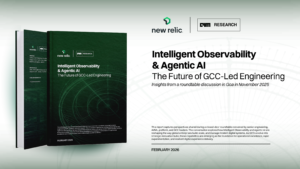o9, a leading enterprise AI software platform provider, has announced an expansion of its collaboration with Microsoft to integrate Microsoft Azure OpenAI Service applications into the o9 Digital Brain. This integration aims to enhance the platform’s AI-powered planning capabilities, providing users with access to powerful large language models (LLMs) such as GPT-4 and GPT-3.5-Turbo.
Harnessing Azure OpenAI Service
Azure OpenAI Service offers REST API access to OpenAI’s advanced LLMs, enabling functionalities like content generation, summarization, image understanding, semantic search, and natural language-to-code translation. By integrating these capabilities into the o9 Digital Brain, o9 aims to revolutionize planning processes by digitizing and connecting organizational knowledge scattered across various platforms like Microsoft Outlook, Word documents, PowerPoint slides, and Teams chat systems.
Enhanced Semantic Search and Digital Assistant Workflows
With the addition of Azure OpenAI Service’s embeddings, o9’s Digital Brain can conduct more accurate and relevant semantic searches across its Enterprise Knowledge Graph. Furthermore, the platform’s digital assistant workflows are improving through an agent framework that leverages Azure OpenAI Service’s chat-completion and code-generation features, facilitating more efficient and intelligent automation within enterprise planning operations.
Driving Real-Time Decision-Making
Dominik Wee, Corporate Vice President of Manufacturing & Mobility at Microsoft, highlighted the significance of this collaboration, stating, “By integrating Microsoft Azure OpenAI Service into the AI-powered o9 Digital Brain platform, we can help manufacturers turn their data into action, allowing for faster decision-making and optimized planning.”
This collaboration between o9 and Microsoft signifies a significant leap forward in the realm of AI-powered planning and decision-making. As companies increasingly prioritize efficiency and real-time insights in their supply chain operations, the integration of generative AI technologies holds immense potential. By leveraging vast amounts of domain knowledge and enabling hyper-automation based workflows, organizations can streamline their planning processes and gain a competitive edge in the market.
Prediction: Future of AI-Powered Planning
With the rapid advancements in AI technologies and their integration into enterprise platforms like the o9 Digital Brain, we anticipate a transformative shift in how businesses approach planning and decision-making. As these technologies evolve and become more accessible, we can expect to see greater agility, accuracy, and innovation in supply chain operations, ultimately driving business success in the digital age.





